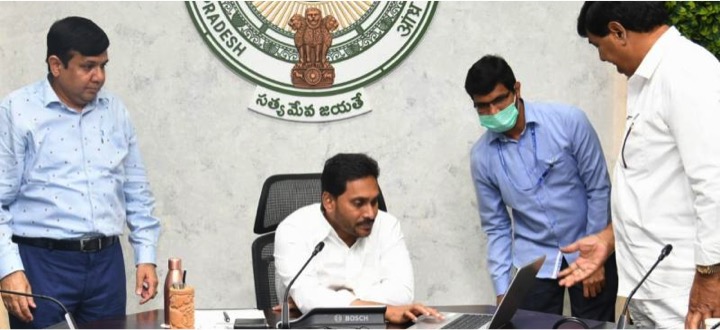Chief Minister YS Jagan Mohan Reddy launched the Jagananna Palavelluva- AP Amul project in Krishna district virtually on Wednesday.
The Andhra Pradesh government’s latest initiative was floated to financially boost the dairy farmers of 264 villages in the Krishna district. ” With the aim of price stabilization on milk, the state government came forward to market the product effectively and ensured remunerative returns are made by the farmers”, said an official.
As per the state government, Amul started working with the state in November 2020. Later it has spread to more than 500 villages in the state. So far, 1.67 crore litres of buffalo milk and 73,96,857 litres of cow milk have been collected from 1,79,248 farmers of 1,906 villages through 1,093 RBKs. An average of 75,000 litres of milk is collected daily from 30,640 farmers.
The Andhra Pradesh Amul project is already successfully in YSR Kadapa, Prakasam, Chittoor, Guntur, and West Godavari districts.
Speaking at the launch, the Chief Minister stated that during his Padayatra he came across several dairy farmers who were facing financial issues. “The dairy farmers told me that they compared their milk rates to that of mineral water, saying while the price of one-litre mineral water was Rs 20, they don’t even get that for a litre of milk”, said the chief minister.
As per state data, the dairy farmers in Andhra Pradesh have made an additional profit of 10.7 crores after the MOU was signed with AMUL, paying a maximum of Rs 74.78 per litre for buffalo milk and Rs 35.36 per litre for cow’s milk.
The Chief Minister said that “When there are multiple sellers and only one buyer, a Bias Monopoly is created leading to sellers coming to terms with the price decided by the buyers, making the financial gain of dairy farmers limited to local milk vendors pricing. The state government is determined to change this system for the benefit of the dairy farmers. The MOU with Amul has brought significant change in the system. The company is the 8th largest Milk processor and isn’t looking to make profits from the state. The dairy farmers are now the stakeholders in this company, they are the ones who are supplying, benefiting, and making profits from this MOU.”

